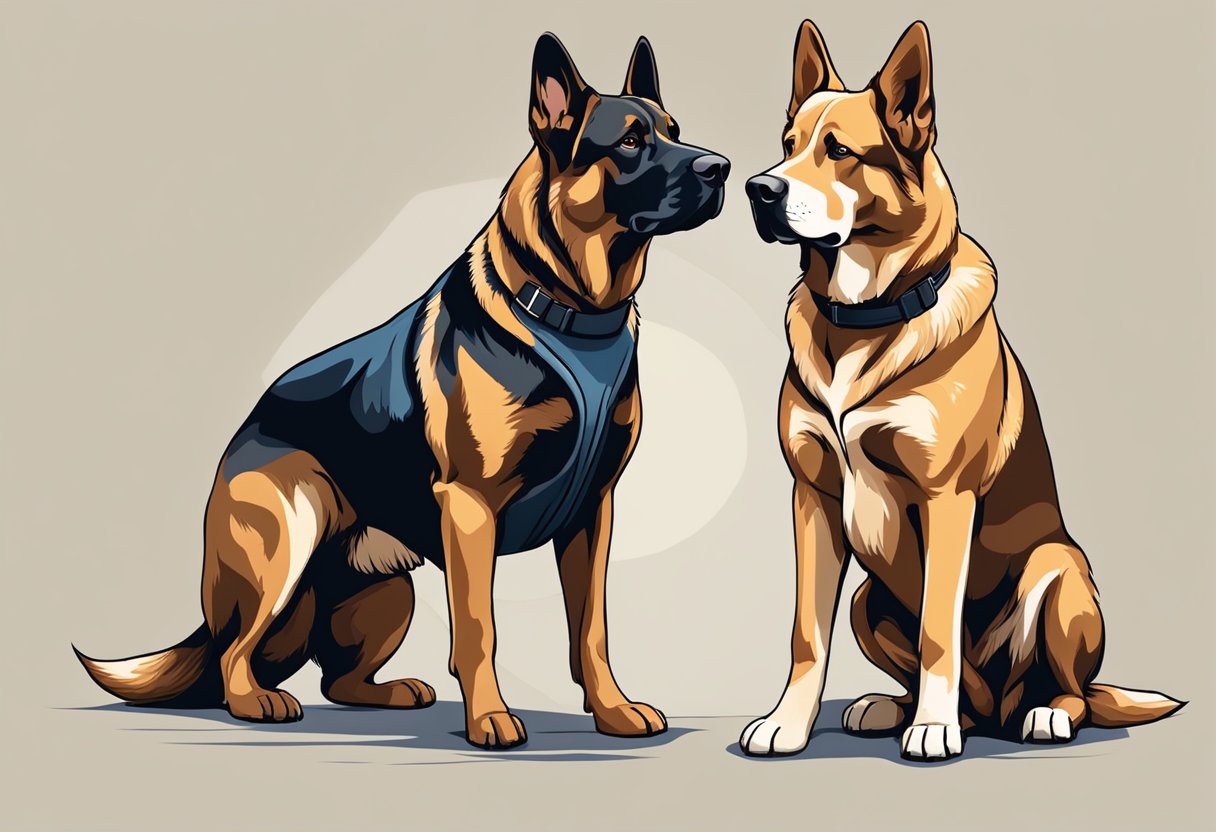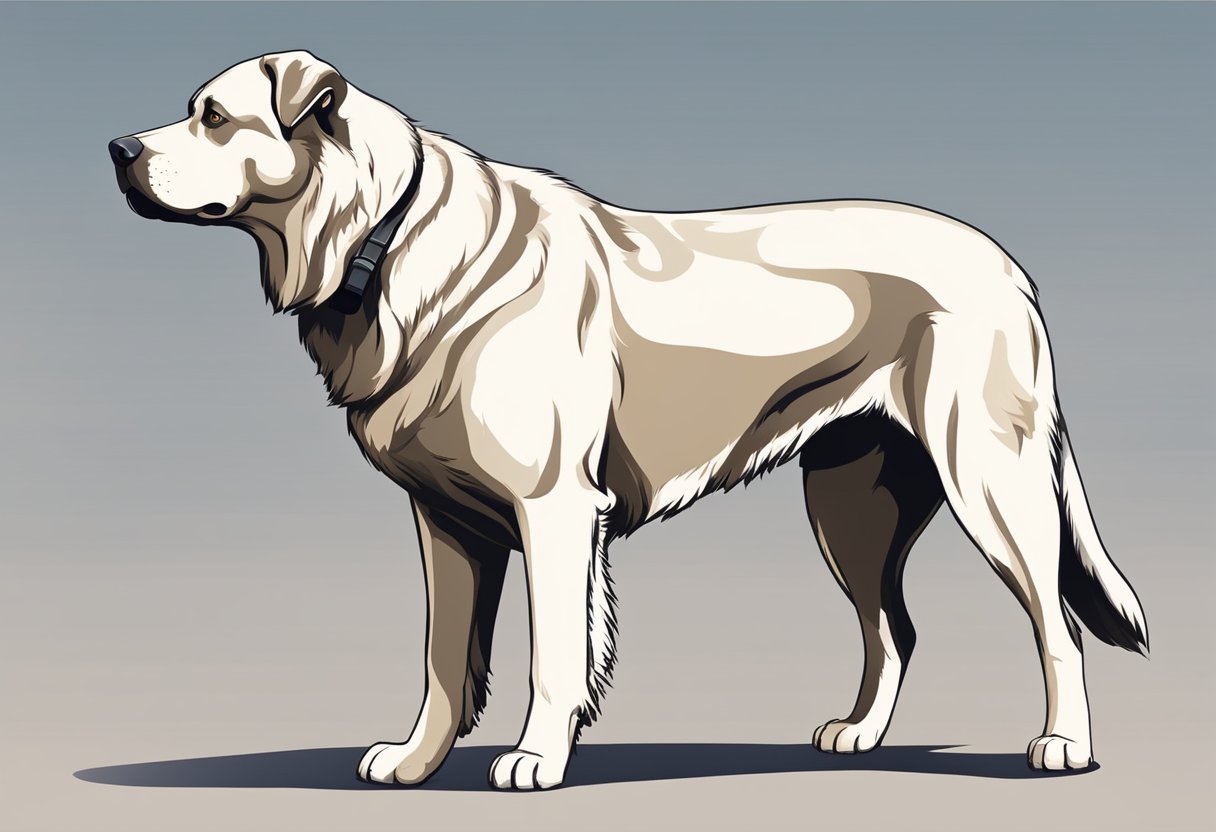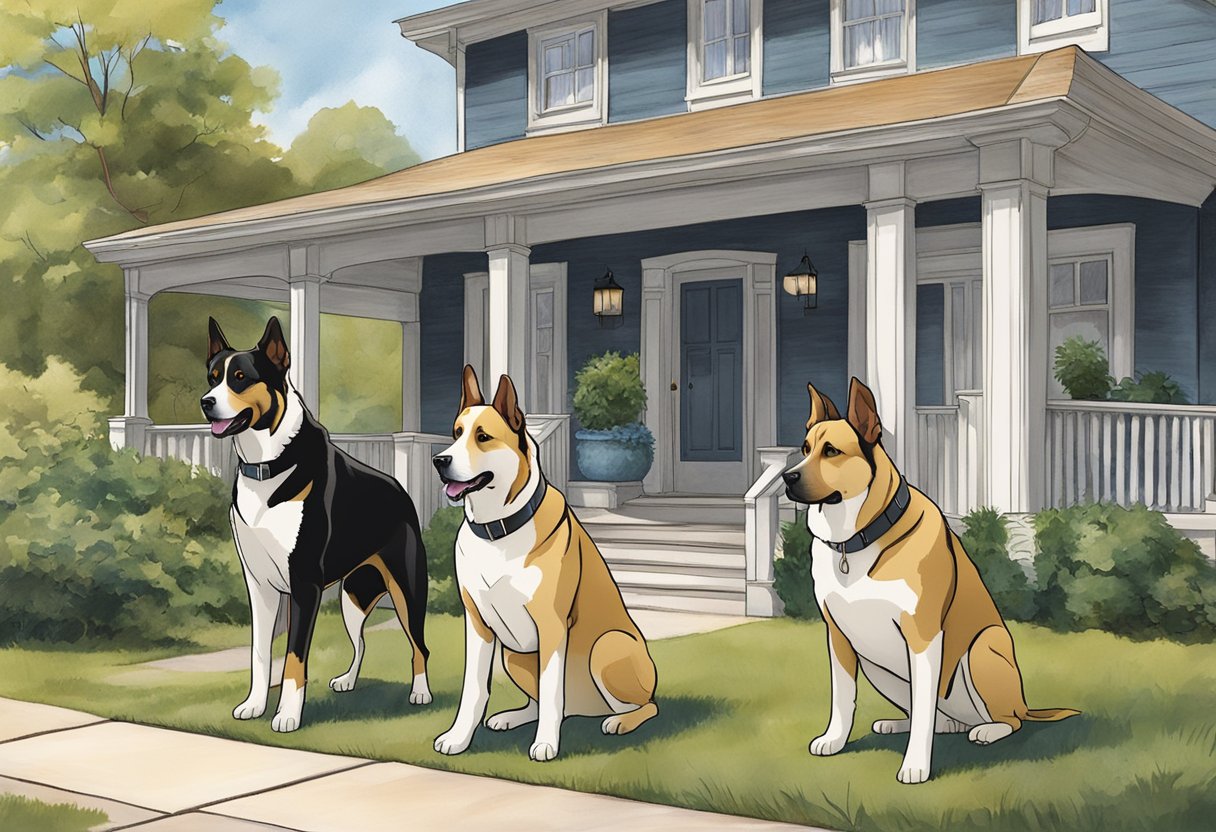When considering home security, a guard dog often serves as one of the most effective deterrents against intruders. These canines are not only a loyal companion but also an excellent means of protection.
The traits of an ideal guard dog combine alertness, loyalty, and a natural instinct to protect their family. Understanding these traits is crucial when selecting a dog to ensure the safety of your home.
Selecting the right breed is just as important as understanding a guard dog’s natural instincts. Various breeds offer different levels of protection, and some are naturally more inclined to serve as guards.
Responsible ownership also requires a comprehensive understanding of the specific training a guard dog needs. This training ensures that the dog not only performs its protective duties but does so in a manner that is safe for both the dog and its human family.
Key Takeaways
- A guard dog provides both companionship and security, with selected breeds offering different levels of protection.
- Proper training is essential to ensure a guard dog effectively and safely performs its duties.
- Owners must be aware of the health care needs and legal responsibilities that come with owning a guard dog.
Traits of a Top Guard Dog
When selecting a top guard dog, certain traits are essential for the role. These dogs are not just pets; they are trusted protectors of homes and families. Here are the key characteristics to look for:
- Intelligence: A guard dog must be sharp and capable of learning commands quickly. They should be able to assess situations and react appropriately.
- Loyalty: They exhibit unwavering devotion to their family. This fierce loyalty drives them to protect their loved ones at all times.
- Strength: A robust physical presence can be a deterrent in itself. Strength enables guard dogs to handle a threat if necessary.
- Alertness: They must be vigilant, always on the lookout for unusual activities or people. Keen senses contribute to their ability to detect intruders early.
- Confidence: Top guard dogs display a calm yet assertive nature. They are not easily intimidated and can handle high-pressure situations.
- Obedience: They must consistently follow their owner’s commands, showing discipline and control.
| Trait | Why It’s Important |
|---|---|
| Intelligence | Quick decision-making & adaptability |
| Loyalty | Protection of family and property |
| Strength | Physical capability for defence |
| Alertness | Early detection of threats |
| Confidence | Ability to face challenges |
| Obedience | Reliability and predictability |
Training and socialisation are also crucial for these dogs to distinguish between everyday occurrences and genuine threats.
Properly trained guard dogs can be loving pets as well as capable protectors. A Rottweiler, for instance, with its formidable appearance and protective instincts, is an example of an excellent guard dog when trained correctly.
Popular Breeds for Guarding
When considering a dog for protection, certain breeds stand out for their courage, loyalty, and protective instincts. Here are some of the top contenders for the role of guard dog.
German Shepherd
The German Shepherd is a versatile breed renowned for its intelligence and capability as a guard dog. They are often employed in police and military roles around the world due to their quick learning ability and strong sense of duty.
Rottweiler
Rottweilers possess a powerful build and a natural inclination to protect their home and family. These dogs are known for their steadfastness and require consistent training and socialisation from an early age.
Doberman Pinscher
The Doberman Pinscher is a breed that combines speed, power, and a formidable appearance with an innate protectiveness. Dobies are well-suited to guarding due to their alertness and loyalty to their owners.
Bullmastiff
The Bullmastiff is a large breed that was originally developed for guarding estates. They are typically fearless and confident, yet also gentle and affectionate with their families.
Giant Schnauzer
The Giant Schnauzer excels as a guard dog due to its strong territorial instincts and impressive size. They require firm training and plenty of exercise, but in return, they provide unwavering protection.
Training Essentials for Guard Dogs
When training guard dogs, a foundation in basic obedience is vital. Dogs need to respond reliably to commands such as sit, stay, and come.
Training should be consistent and start early. Specialists recommend beginning as early as six months to prepare the dog adequately for their role.
Key Stages:
- Socialisation: Exposing the dog to various people and environments to prevent over-aggressiveness.
- Obedience Training: Establishing control through commands like ‘no’, ‘sit’, ‘stay’, and ‘heel’.
- Boundary Training: Teaching the dog the limits of the area they are supposed to guard.
Training Techniques:
- Positive Reinforcement: Rewarding good behaviour with treats or praise for better learning outcomes.
- Professional Training: For best results, working with a trainer experienced in guard dog training can be highly beneficial.
- Continual Practice: Regular refresher sessions to maintain the dog’s skills.
Guard dogs need to be well-adjusted and safe to be around, so their training should also teach them to differentiate between normal behavior and genuine threats. This helps prevent unnecessary aggressive reactions towards friendly individuals or animals.
Health and Care Considerations
Guard dogs are renowned for their loyalty and protective instincts, but proper health and care are paramount for maintaining their well-being and ensuring they can perform their duties effectively. Here are key considerations:
- Regular Health Checks: Annual vet visits are crucial for vaccinations, health screenings, and to catch any potential issues early. Guard dogs, due to their active nature, may be more prone to certain health conditions that require attention.
- Balanced Diet: A diet that’s rich in nutrients supports a guard dog’s active lifestyle. One should tailor their meals to their specific breed, size, and energy requirements.
- Exercise: Sufficient daily exercise not only keeps guard dogs physically fit but also mentally stimulated. It’s an indispensable part of their routine.
- Training and Socialisation: Continuous training is important to sharpen their skills, while socialisation helps in managing their temperament.
- Grooming: Depending on the breed, some guard dogs may require more grooming than others. Regular brushing, bathing, and nail trimming are essential to prevent any discomfort or infections.
| Health & Care Aspect | Guidelines |
|---|---|
| Health Checks | Annual vet visits for vaccinations and check-ups |
| Diet | Nutrient-rich, breed-specific, size-appropriate meals |
| Exercise | Daily exercise tailored to the dog’s energy level |
| Training & Socialisation | Ongoing to maintain skills and manage temperament |
| Grooming | Regular brushing, bathing, and nail trimming based on breed requirements |
Legal Responsibilities and Considerations
When considering acquiring a guard dog, potential owners must be aware of the legal responsibilities involved. It’s imperative to understand that local councils may have specific regulations and requirements that govern the ownership of guard dogs.
Registration and Permits:
One might need to register their guard dog with local authorities or even obtain a specific permit.
Liability:
Owners are usually legally liable for any harm their guard dog may cause. Proper signage warning about the presence of a guard dog is often essential.
Training Standards:
Guard dogs require professional training to ensure they respond appropriately in various situations. This helps prevent overly aggressive behaviour which can have legal repercussions.
Insurance:
It’s prudent to hold liability insurance in case the guard dog inadvertently injures someone.
Fencing and Housing:
Adequate fencing and secure housing are necessary to prevent the guard dog from escaping and to ensure public safety.
For those in the UK interested in the intricacies of guard dog ownership, they should look further into legal facets like the Dangerous Dogs Act which stipulates the breeds subject to specific controls or bans and the Animal Welfare Act which demands proper care and treatment.
In the UK, owning a guard dog comes with its own set of legal considerations for guard dog ownership. It is necessary to remain compliant with these rules to not only protect oneself from potential legal issues but also to ensure the well-being and proper management of the guard dog.
Frequently Asked Questions
When selecting the perfect guard dog, prospective owners often have a host of questions, seeking breeds that align well with their lifestyle and security needs. Below are answers to some common queries.
What are the top breeds recommended for someone seeking their first guard dog?
First-time guard dog owners often find breeds such as the Doberman Pinscher and the German Shepherd to be great choices. These breeds are known for their trainability and balanced temperament.
Which breeds are known to be the most suitable guard dogs for families with children?
Families with children usually benefit from a guard dog that is both protective and gentle. Breeds like the Boxer and the Labrador Retriever are known for their affectionate nature towards children while also being excellent watchdogs.
For individuals looking for protection, what are the most loyal and vigilant canine breeds?
Individuals seeking protection will find breeds such as the German Shepherd and the Rottweiler to be among the most loyal and vigilant. These breeds are often used in law enforcement and as family protectors.
Could you suggest some guard dog breeds that are considered low maintenance?
For those seeking a low-maintenance guard dog, breeds like the Bullmastiff or the Great Dane are good options. These breeds require less grooming and exercise, making them suitable for owners who may have less time for upkeep.
What are the best dog breeds for enhancing home security?
Certain breeds excel at enhancing home security due to their alertness and assertive presence. The Beauceron and the Belgian Malinois are among the top picks for their keen senses and natural guarding instincts.
Can you advise on which dog breeds are particularly good for women seeking a protective companion?
Women seeking a protective companion often choose breeds that are both intimidating to strangers and manageable in size.
The Doberman Pinscher is a popular choice, known for its unwavering loyalty and ease of training.



